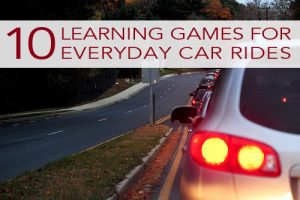The following is a guest post from Amanda of Not Just Cute: Homeschooling Is Not Optional
All parents should homeschool their children.
What I just wrote may surprise some people, particularly given that I have taught in the public school system and have my son registered to begin kindergarten this fall at our local public school. But I’ll still stand by it.
Let me explain.
Many parents are very conscientious about the decision to enroll their children in private, public, charter, or home schools. They consider factors such as school quality, child personality, family situation, and so on. Different families arrive at different answers. Some families even arrive at different answers for different children. There isn’t one perfect answer for everyone.
And yet, every child should be homeschooled.
This doesn’t mean you need to throw out the furniture in your front room and replace it with a row of desks and a blackboard. What I mean is that the choice to send your children to a school outside of the home does not absolve you of your responsibility as a parent to teach your children.
Table of Contents
A House of Learning
The home is not just the first place a child learns; it is where a child learns to value learning. Here are some ways you can convey to your child that you value education.
- Be a role model. Let your children see you reading, learning new skills, taking classes, or finishing up that degree.
- Think together. Engage your children in conversation, wonder out loud, and introduce new words and ideas. (You can read more about why that’s important in another post here.)
- Let books abound. Go to the library together. Give special books as gifts. Take children to the bookstore. Read together. Children who have access to books and are read to regularly have a clear learning advantage over children without such experiences.
Be in the Know
Even if you choose not to teach your children full-time yourself, you need to be involved in your child’s education. Know what he’s learning and check for understanding. Supplement if necessary. Work as an advocate for your child and a partner with his teacher.
I know of a woman who believes that teaching is the teacher’s job, so she doesn’t spend “her time” on “that stuff.” Even homework and reading, she feels, are not part of her job. Not surprisingly, her son struggles incredibly at school. She may think she is giving more to her son by being the “fun” mom, but if she was fully aware of the challenges she faced for her son, I can’t imagine she wouldn’t change her ways.
What They Don’t Teach You at School
No school can address your child’s every need. I often discuss the “whole child,” a common term in the educational and developmental literature. It refers to the education of not just the cognitive aspects of a child but also the creative, physical, and so on. And yet, you will not likely find much spiritual education in a public school. Spirituality is a part of the whole child and shouldn’t be neglected. In public schools, you will find character development, perhaps, but not real morals. References to religion, on occasion, but little on faith. This is your job. Tend to it intentionally.
Numbers on a greater scale also bind schools. A number of children, numbers in budgets, numbers in legal liabilities. You are able to zero in on your child’s passions and offer expansion and experiences a school can not. If you see that your daughter is fascinated by sea life, don’t wait for that marine biology unit to come along- go to the library, the aquarium, or the beach! Make dioramas and write your own books. Teach your children that we learn because we want to, not because we have to!
The Choice is Yours
Several friends asked me about my thoughts on homeschooling versus public schooling, including sen teacher & teacher assistant jobs. Each family must make its own choices. But I tell my friends that for me, the choice is both. I believe we must think of our homes as schools, or it will matter little what we choose instead.
What choice have you made for your family? How do you embrace education at home outside of formal homeschooling?
Amanda Morgan is a graduate of Utah State University who holds a BA in both elementary and early childhood education and an MS in childhood development. She is a mom, educator, and writer for her blog, Not Just Cute, which focuses on the development of the whole child.




